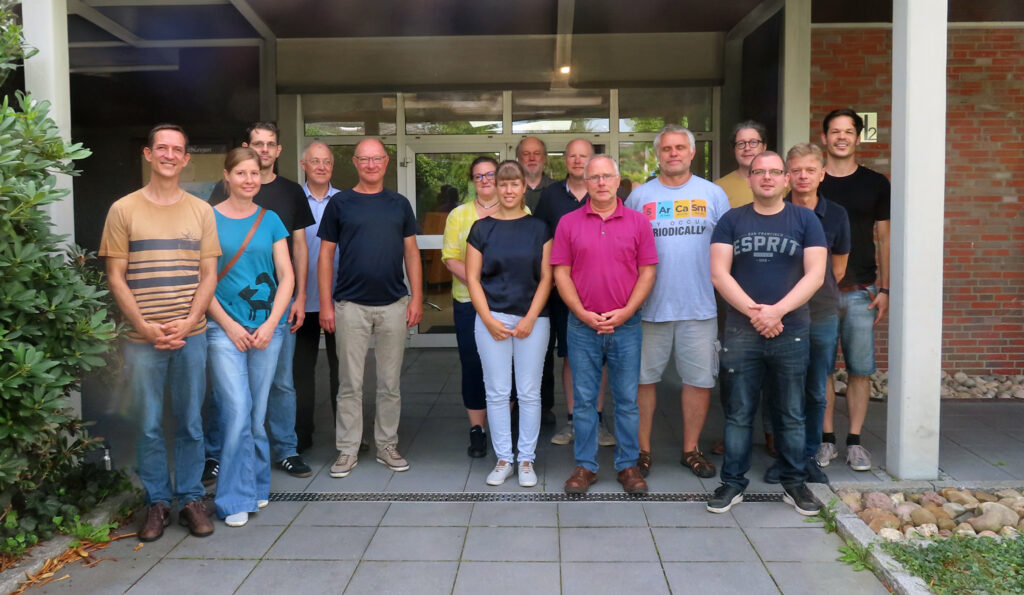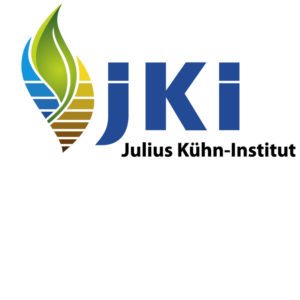 | The JKI Institute for Bee Protection currently has 31 employees and excellent expertise and infrastructure for laboratory and field trials. Among its preliminary achievements is the project "Optimal detection of influences on pollination performance and vitality of bee colonies." The research focus of the institute is on ecotoxicology and ecology of honey bees and wild bees. The institute investigates possible risks to bees from plant protection products and works intensively on the development of new and the improvement of existing testing and assessment methods. Currently, the institute is working on the question of which measures for the design of agricultural landscapes and urban areas influence the health and performance of honey and wild bees and in what way. Therefore, the development and application of indicators measured with current technology fits perfectly into the portfolio. |
 | The company Gero Meßsysteme GmbH is engaged in the development, manufacture and distribution of devices for measurement data acquisition. The main areas of application are water supply, meteorology, industry, hydraulic engineering and environmental protection. The services include sensors, data loggers as well as software packages. Gero has 9 employees and since 2012 there has been a cooperation with the JKI for the development of an electronic bee counter, which was initially equipped with light barriers, but now with capacitive measurement technology due to its better accuracy. The devices are available in sufficient quantities. |
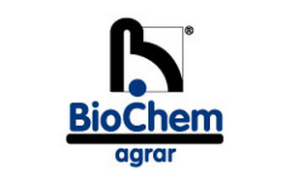 | As an established contract laboratory in the field of ecotoxicology, Biochem Agrar offers a wide range of tests for the approval / registration of pesticides / biocides / chemicals and medical devices. The performance of GLP-compliant studies is based on the currently valid OECD, ISO, IOBC, EPPO and EPA guidelines as well as many years of experience in the field. The modern laboratory complex enables the processing of a wide range of aquatic and terrestrial studies. In addition to standard laboratory studies, Biochem Agrar offers a wide range of higher-tier studies in the greenhouse, under semi-field conditions and in the field. Thereby, a wide-ranging BioChem-internal network of experimental sites and its infrastructure can be used. Biochem Agrar GmbH has 120 employees. |
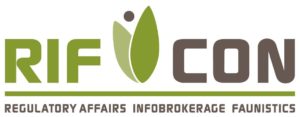 | RIFCON GmbH is an independent scientific service company with a focus on the evaluation and registration of pesticides and biopesticides. This focus includes, among others, the performance of ecotoxicological semi and field studies of pollinators, evaluation within the framework of EU directives as well as the feasibility of guidance documents, recommendations of new or modified test designs and basic scientific studies and publications. Furthermore, the team 'Effect Modeling and Statistics' with currently 6 employees deals with the creation and application of process-based models as well as statistical data analyses for the risk assessment of pesticides. In total, about 170 scientific employees are currently working at RIFCON GmbH, including one beekeeper. For the scientific exchange, among other things in the field of effect modeling, there is a good network to universities and research institutions as well as a lively contact with regulatory authorities and industry partners. |
 | The Helmholtz Centre for Environmental Research-UFZ was founded in 1991 in Leipzig and Halle. It currently employs about 1100 people. Meanwhile, the UFZ is a worldwide recognized competence center for research and remediation of environmental pollution as well as for the protection of biodiversity and near-natural landscapes. It has been involved in over 100 EU projects as well as numerous national projects, including those funded by the BMEL. The Department of Ecological Systems Analysis, employs about 40 modelers and is one of the largest and most experienced groups in ecological modeling worldwide. It has developed numerous models for the conservation of endangered species and ecosystems, and has been a sought-after partner in national and international projects. Its particular strength lies in individual-based and spatially explicit simulation, which allows it to develop practice-based solutions. |
 | Das Fachzentrum für Bienen und Imkerei (FBI) im Dienstleistungszentrum Ländlicher Raum Westerwald-Osteifel ist als Einrichtung des Landes Rheinland-Pfalz zuständig für alle Belange der Imkerei in diesem Bundesland und über Kooperationsverträge auch im Saarland und in Nordrhein-Westfalen. Arbeitsschwerpunkte sind die bundesweiten Monitoringsysteme TrachtNet mit mehr als 300 Messstellen in Deutschland und bundesweite Erhebungen (> 10.000 standortbezogene Datensätze je Umfrage) zu verschiedenen Parametern der Imkerei (Bienensterblichkeit, Ertragsdaten etc.). Im Deutschen Bienenmonitoring (DeBiMo) koordiniert das FBI die Datenerhebungen, die Datenbankentwicklung und betreut Imker an 17 DeBiMo-Standorten. Das Pathologielabor des FBI führt Krankheitsuntersuchungen bei Bienen und Bienenvölkern durch. Dabei stehen epidemiologische Studien zur Ausbreitung der Amerikanischen Faulbrut an erster Stelle. Das Honiglabor verfügt über eine langjährige Expertise bei Honigqualitätsuntersuchungen und Pollenanalysen. Über seinen Ausbildungs- und Beratungsauftrag besteht ein kontinuierlicher enger Kontakt zur Imkerpraxis. Das FBI hat derzeit 8 fest angestellte Mitarbeiter. |
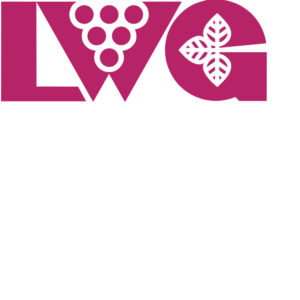 | The Bee and Beekeeping Specialist Center (FBI) in the Service Center Rural Area Westerwald-Osteifel is an institution of the state of Rhineland-Palatinate responsible for all matters of beekeeping in this federal state and, through cooperation agreements, also in Saarland and North Rhine-Westphalia. The main areas of work are the nationwide monitoring systems TrachtNet with more than 300 measuring sites in Germany and nationwide surveys (> 10,000 site-related data sets per survey) on various parameters of beekeeping (bee mortality, yield data, etc.). In the German Bee Monitoring (DeBiMo), the FBI coordinates data collections, database development and supervises beekeepers at 17 DeBiMo sites. The pathology laboratory of the FBI conducts disease investigations in bees and bee colonies. Epidemiological studies on the spread of American foulbrood are the primary focus. The honey laboratory has long-standing expertise in honey quality testing and pollen analysis. There is continuous close contact with beekeeping practice through its educational and advisory mission. The FBI currently has 8 full-time employees. |
 | As a non-profit institute owned by the state of Rhineland-Palatinate, the Institute for Agroecology of RLP AgroScience (AS) has been conducting interdisciplinary and application-oriented research in the fields of agriculture and environment for more than 20 years and cooperates with public and private clients in numerous projects. In the Department of Environmental Systems, new methods of digital landscape recording and analysis are developed and implemented with the help of geoinformation systems. An important research focus is geodata-based landscape modeling and the development of new methods for remote sensing-based land cover analysis.
In addition to a high-resolution land cover dataset[1] available for Rhineland-Palatinate, AS is currently involved in 2 research projects dealing with the automated analysis of the Sentinels S 1 and 2 (acronyms SoFi and TimeStamp). |
 | As part of the Eurofins Scientific group of companies, Eurofins Agroscience Services aims to be the number one contract research organization of its kind. Since its inception, Eurofins Agroscience Services has acquired some of the most respected CROs and laboratories in the agrochemical sector. While the resulting global offering of Eurofins Agroscience Services is quite new, all of its individual companies have a track record of over 30 years of providing clients with high quality services in their respective areas of expertise. Eurofins Agroscience Services now leverages the expertise and strengths of all its subsidiaries to create a complete service offering for agrochemical manufacturers. In doing so, the industry is offered full technical support in screening and development, registration and support of new and existing products around the world. (see https://www.eurofins.de/agroscience/ , 9/17/19). Due to its size, Eurofins Agroscience Services acts as a non-beneficiary in the project. |
 | The Research Institute for Ecosystem Analysis and Assessment e.V. - gaiac is an institute founded in 2003 at the RWTH Aachen University in the form of a registered association, whose employees have many years of experience in working on application-related ecotoxicological and ecological issues. The institute currently employs 34 scientific staff (17 full-time equivalents in total). Research focuses on ecosystem analysis and assessment of aquatic and terrestrial communities and their changes due to anthropogenic influences. Research work to date includes experimental studies in the laboratory and in the field, the development of mathematical models for biological environmental processes, and the formulation of solution strategies for sustainable environmental development. Corresponding services are offered to authorities, industrial companies, water associations and planning offices. In addition, gaiac has been involved in various interdisciplinary research projects in the areas of development of ecological models, development of tools for pesticide assessment, risk assessment of nanomaterials, monitoring, ecosystem analysis, etc. for various funding agencies such as BMBF, UBA, BfN , DBU and CEFIC. The modeling group currently includes 7 staff members who are involved in the development and application of ecotoxicological and ecological models. |
